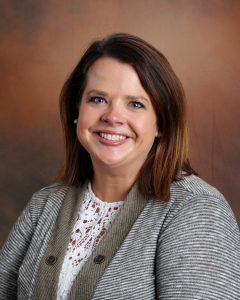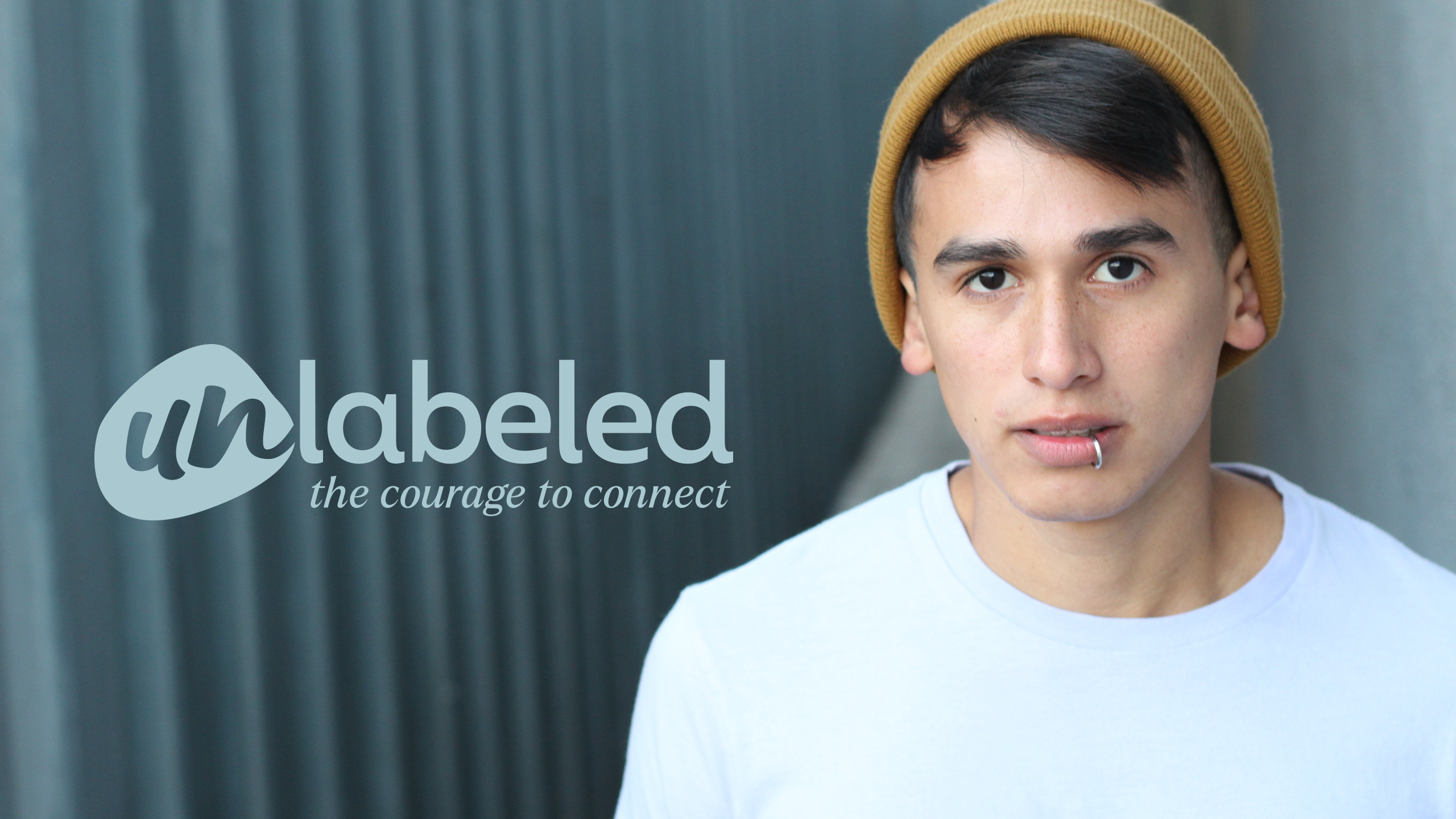Unlabeled is a three-part blog series that focuses on removing the stigma associated with people that are contemplating suicide and discusses the impact of human connection.
“I need help.”
When we were children, uttering those three words came effortlessly. When we needed any kind of help, whether we were tying our shoes or trying to solve a math problem, we asked for it. So often that our parents and teachers would sometimes encourage us to give it our best shot on our own first, and if we still needed some assistance after that, they’d provide it.
Never in those formative years did the possibility cross our minds that asking for help might be seen by others as a sign of weakness or an indication there was something wrong with us.
That realization comes later, and not wanting to be seen by those around us as somehow compromised, asking for help often becomes one of the last things we want to do.
Despite the COVID-19 pandemic shining the spotlight on the importance of self-care, mental health, and emotional wellness, acknowledging that we need help remains an almost impossible leap. We see someone like Simone Biles, the most decorated gymnast in history and at the peak of her abilities, bowing out of the Summer Olympics in 2021 for her own mental health wellbeing. But even that courageous admission isn’t enough. We simply can’t bring ourselves to accept that we can’t power through whatever our issues may be on our own, and we need an outside intervention.
And then our troubles mount. Stress. Anxiety. Depression. It can all lead to a deeper, downward spiral, to the point that the chemicals in our brains and bodies become imbalanced and alter our very biological, physical being. At that point, we’re not only petrified, we’re embarrassed, and asking for help becomes even a more daunting challenge.
“There are certain areas of our brain that regulate mood. A neurobiologist would speak to this much more eloquent than I, but there are many areas of the brain that impact our mood from levels of brain chemicals to nerve circuits and neurotransmitters,” explains Tara Rodriguez, a Licensed Independent Clinical Social Worker (LICSW) with Alluma. “There is also research that indicates that stress and cortisol levels impact these brain chemicals and functioning. Medication for depression for some individuals may be likened to taking insulin for diabetics. When an area of the body, brain, or pancreas is not functioning properly, we prescribe medication to optimize functioning, from anti-depressants to insulin. This is a fairly simplistic description, but the overall message to me is that it isn’t always possible for people to just ‘try harder’ or ‘cheer up.'”
So if we are not able to simply try harder or cheer up, is harming ourselves actually an option we’d consider? Would we be better off? Would our loved ones, friends, colleagues, and everyone else be better off without us if we’re no longer around to burden them?
Suicide. It’s right here with us, right here in our own cities and towns, and, lately, it’s been touching more of us.
More than sad
Rodriguez explains what can happen when being sad, lonely, or “down in the dumps” becomes something far more significant and far more daunting:
“Everyone experiences bouts of sadness throughout their life. Suicide most often comes for people when faced with an experience or feelings they cannot cope with. For some that battle depression, it may be that they have been trying to cope with feelings for so long without relief,” Rodriguez says. “A loss of hope for the future may make one believe that suicide is a solution. For others, experiencing a crisis may put them in a situation where they feel there is no way out. And they aren’t in a healthy mindset to see any other way.”
When caught in a web of despair, it’s a critical moment for us and those around us. The importance of what happens next cannot be overstated, Rodriguez stresses.
“We need to listen to each other and think before we speak. Sometimes people will say things like, ‘If only they would have talked to me’ or ‘I wish they would have told me how much they were hurting.’ Which is a normal response,” she explains. “Others say things like ‘They are so attention-seeking,’ ‘Lots of people have it worse” or ‘Suicide is selfish.’ Consider those latter phrases; if we say those things will our friends or family feel like they can reach out?”
What happens, and what doesn’t, when we reach out
What compounds our fear of seeking help is our belief that reaching out to professionals will set in motion a chain of events that we will not be able to control or undo. We’re afraid we’ll be judged as mentally and emotionally unstable. We assume we will be considered a danger to ourselves, and someone – a law enforcement officer, even – might come knocking on our door and take us away.
At Alluma, Rodriguez breaks down what will happen, what might happen depending on the given situation, and what won’t happen when we summon all of our courage and say, “I need help.”:
“In terms of a crisis hotline, the crisis hotline is answered 24/7/365 right here in Crookston. Callers can choose to remain anonymous if they wish. The crisis line staff are trained to respond to phone calls, which can include just talking through a situation or getting advice and support,” Rodriguez explains. “The next tier of response could include an offer to meet with a trained person and make a plan to keep yourself or your loved one safe. For adults, that plan could include staying in our crisis stabilization unit. In the top tier, we would recommend evaluation for inpatient hospitalization. A misperception might be that calling the crisis line results in hospitalization. That is the last layer of support and reserved for those who need the most safety. There are many times that a call results in listening with empathy, making a referral for a therapy appointment, or helping a person feel safe in their own home.”
There are ways to seek help beyond calling an actual crisis line.
“Alluma, and many other agencies, have expanded the way folks can access services. At Alluma, there’s a Request an Appointment button at the top of every page on our website, or you can call to make an appointment. Alluma offers the option to schedule an appointment into the future or use our same-day access of walking in to meet with a professional,” Rodriguez continues. “The person coming in will meet with one of our intake staff to gather basic information and complete screening questions for depression, anxiety, and suicide before meeting with a professional. The information gathered from the intake helps the professional in what is called a Comprehensive Evaluation. The evaluation reviews an array of aspects in a person’s life to help determine a diagnosis and course of treatment and services.”
In other words, you will identify a path forward. The path might be relatively short, or it might involve an extended journey of exploration that leads to improved mental and emotional wellness.
“I think sometimes people think things need to get really bad before they would go so far as to have therapy—quite the contrary. We have people that attend appointments from all walks of life, and some you can tell are hurting where others you’d never know,” Rodriguez notes. “Much like physical health – sometimes there is pain you can see and sometimes not. Tele-Health has broadened the reach to folks that don’t want to leave the privacy of their own home to access therapy or psychiatry services. That might be one silver lining of COVID.”
Reaching out to others
If it’s exceedingly difficult for some of us, amid varying levels of crisis, to seek out support from an outside source, it’s at least as difficult for friends, loved ones, and co-workers who are concerned about us to reach out to us to ask if we’re OK. And if we’re not, to intervene to a greater extent. If a loved one, friend, co-worker, or anyone else who cares about us and our wellbeing senses that we are in crisis mode, what should they do? What should they not do?
Rodriguez says these can be crucial moments, and she highly recommends utilizing QPR, which she calls the “CPR of mental health.”
“I would love to see more people in our community trained in Question, Persuade, Refer (QPR),” she says, adding that there is a free 90-minute class on QPR offered virtually through the Hope Coalition and NAMI Minnesota.
QPR is an emergency response to someone in crisis and can save lives, Rodriguez continues.
“In short, ask and follow up. The program ‘#BeThe1To‘ challenges citizens to five things – be the one to ask, be the one to be there, be the one to help keep them safe, be the one to help them connect, and be the one to follow up. You can help a friend or family member connect by normalizing mental health services, helping them call and schedule an appointment if they need help, or informal safety planning,” she explains. “It is a myth that talking about suicide puts ideas in people’s heads. If you sense that the person you are concerned about is in immediate danger, call the crisis line. Or in extreme cases, a welfare check done by law enforcement may save a life. An example of this would be if a loved one texted you, ‘I just want to end it all.’ If they don’t respond to you and you can’t reach them, I would not hesitate to call in this escalated level of response.”
So, whether you’re struggling and unsure what to do next, or you sense someone you care about is struggling, don’t do nothing. Do something.
If you are feeling distressed, anxious, or experiencing a mental health crisis, please call our 24/7 Support & Crisis Helpline at 1-800-282-5005.
 |
Tara Rodriguez, MSW, LICSW Tara oversees our School-linked Mental Health Program and spends most of her time at Highland Elementary in Crookston, MN. |

